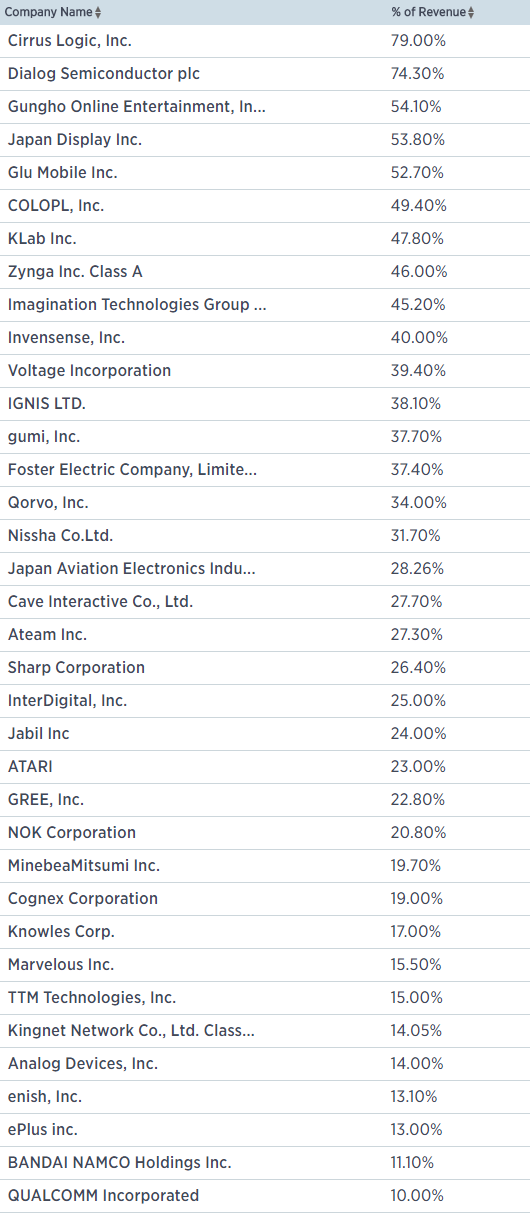 2193
2193
 2018-01-02
2018-01-02
Apple doesn't sell many products — you can probably count most of them on your hands and feet.
But it's hard to overstate the company's scale and power. As the most valuable franchise in the world, Apple own more U.S. Treasury securities than many major countries, was the fourth-largest purchaser of solar power in 2016 as measured by megawatts, is the top retailer per square foot and even had a 140-acre wetland built in Oregon, in part to cool an Apple data center.
Then there's the massive supply chain. Apple's products are so intricate and require so many outside contributions that 36 publicly traded companies count on the iPhone maker for at least 10 percent of their revenue, according to FactSet.

It's not just smaller companies. Chipmaker Qualcomm gets 10 percent of revenue from Apple. After working harmoniously together for years, the two companies are in the midst of an exhaustive legal dispute over royalty payments, patents and contracts.
Qualcomm has many reasons to be concerned, including this one: As of Friday, Counterpoint Research estimates that Apple is now the top global smartphone system-on-a-chip provider — second only to Qualcomm.
Apart from collaborations like Super Mario and Swift Playgrounds, Apple doesn't stamp its name on too many games, turning instead to third-party developers to supply the entertainment that fills the App Store.
There's plenty of money to be made. On Christmas day alone, consumers spent $158 million on mobile games, according to data from Sensor Tower. But gaming is also a hit-driven industry, fueled by fads like FarmVille, Pokemon Go and Flappy Bird.
Source: cnbc